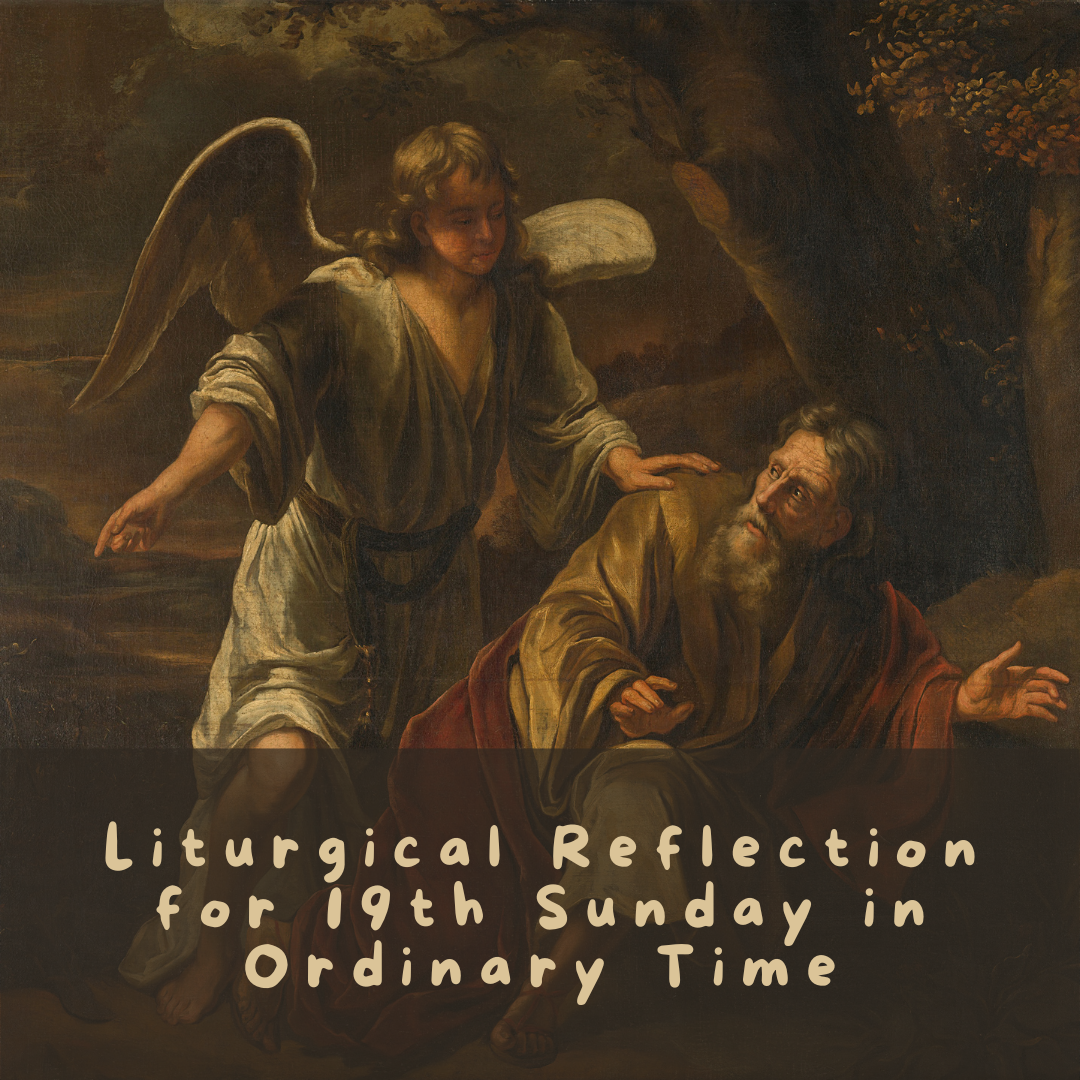Today’s readings focus on the importance of encountering God’s compassion and provision and connecting to Jesus, our eternal bread of life.
In the first reading, the prophet Elijah was at a moment of the deepest despair. He has fled into the wilderness, feeling overwhelmed and ready to give up. He prayed for death, expressing his sense of failure and exhaustion. However, God responds to Elijah’s plea, not with rebuke but with compassion. An angel provides him with food and water, sustaining him for the journey ahead to Mount Horeb.
Elijah’s experience reminds us that God is aware of our struggles and provides for our needs, often in unexpected ways. When we feel overwhelmed, God offers sustenance and strength to continue our journey.
In the Gospel reading, Jesus declares Himself as the “bread of life” that came down from heaven. This statement is met with skepticism and murmuring from the Jews, who question how Jesus, whom they know as the son of Joseph, can claim to have come down from heaven. Jesus responds by emphasizing that no one can come to Him unless drawn by the Father, and He promises eternal life to those who believe.
Jesus’ declaration that He is the bread of life is central to this passage. This metaphor highlights the spiritual nourishment and sustenance that Jesus provides. Just as bread is essential for physical survival, Jesus is essential for spiritual life. Reflecting on this, we are reminded of the importance of seeking spiritual nourishment through our relationship with Christ.
Reflecting on the lives of Elijah and Jesus, we see how God works through both human prophets and His divine Son to accomplish His purposes. Elijah’s story reminds us of God’s provision and care in times of despair, while Jesus’ life and teachings offer us the promise of eternal life and a deeper relationship with God. Both figures inspire us to trust in God’s plan and to seek a closer connection with Him.
Catherine Yu

